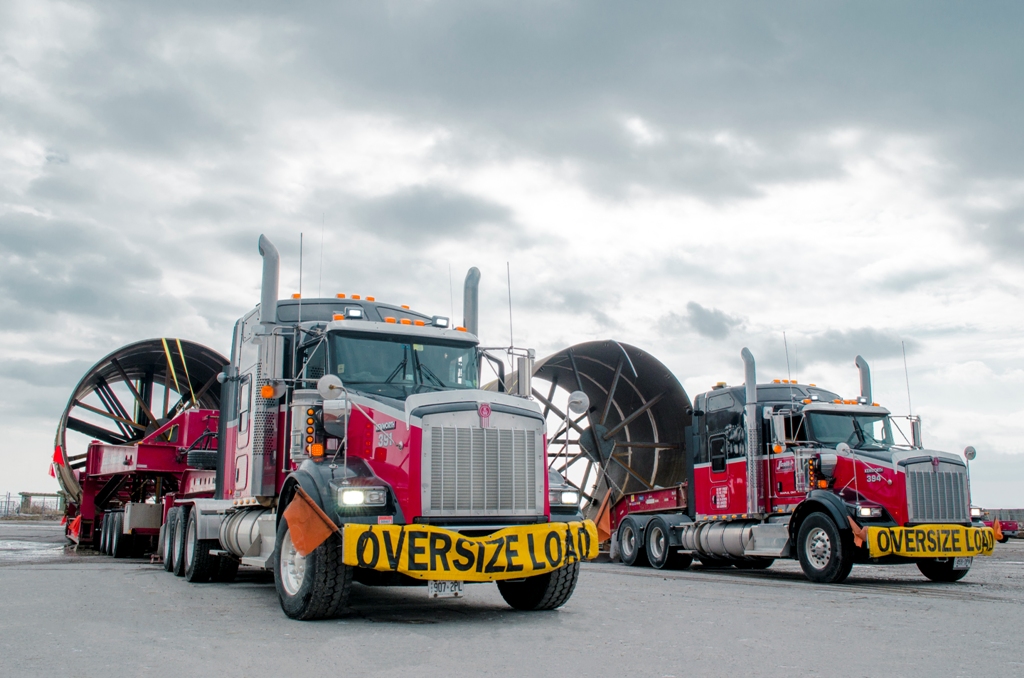
In today¡¯s fast-paced industrial world, moving large machinery and oversized equipment is a task that demands precision, planning, and expertise. This is where heavy hauling logistics plays a vital role. Industries rely on experienced logistics providers like Walker Logistics to ensure that essential machinery reaches its destination safely and on time, enabling projects to stay on schedule and within budget.
The Importance of Specialized Logistics
Transporting heavy equipment is not as straightforward as standard freight. Oversized loads require special permits, advanced route planning, and vehicles built for the job. Logistics providers handle these challenges, ensuring that each step from loading and transit to delivery is carefully coordinated. Without specialized logistics, delays, safety hazards, and unnecessary costs could severely impact industrial operations.
Meeting the Demands of Modern Industries
Modern industries such as construction, energy, and manufacturing depend on heavy machinery to operate efficiently. A delayed crane or excavator can halt entire projects, costing companies both time and resources. By relying on logistics experts, industries gain the assurance that their equipment will arrive where and when it is needed. This reliability supports large-scale operations, ensuring they remain competitive in a demanding market.

Ensuring Safety During Transportation
Transporting heavy and oversized machinery comes with inherent risks. From securing loads to managing road safety regulations, every detail matters. Professional logistics companies use advanced securing systems, trained operators, and strict safety protocols to protect both the cargo and the people involved in its transport. This emphasis on safety ensures compliance with regulations while minimizing the risk of accidents or costly damages.
Cost-Effective Solutions for Businesses
Managing the movement of large machinery in-house can be overwhelming and costly. Professional logistics services reduce these expenses by optimizing transportation routes, securing the right permits, and minimizing risks of delays or damage. This results in significant cost savings for industries, allowing them to allocate resources to other vital aspects of their operations.
Technology¡¯s Role in Heavy Hauling
The integration of technology has transformed the way oversized equipment is moved. GPS tracking, route optimization, and real-time communication allow logistics teams to monitor shipments closely and make adjustments when necessary. These innovations provide transparency, reduce delivery times, and ensure customers stay informed about the status of their shipments. For industries where timing is critical, this technological edge is invaluable.
Supporting Infrastructure and Growth
Large-scale industrial projects such as road construction, mining operations, or energy plant development rely heavily on the smooth movement of machinery. Logistics providers make this possible by offering tailored solutions that address each project¡¯s unique challenges. This support is crucial for industries seeking to expand operations, build infrastructure, or deliver services on a regional or national scale.
Environmental Considerations in Logistics
With sustainability becoming a priority for many industries, logistics providers are focusing on eco-friendly practices. Fuel-efficient vehicles, route optimization, and reduced idle times contribute to lowering the environmental impact of transporting oversized loads. By adopting greener methods, logistics companies not only meet industry needs but also help businesses achieve their environmental goals.

Building Industrial Efficiency Through Logistics
The efficiency of industrial operations often depends on the reliable movement of heavy machinery. Delays in transport can cause costly downtime, while safe and timely deliveries ensure that projects move forward seamlessly. By outsourcing equipment relocation to professional logistics providers, companies can focus on their core operations, knowing that their equipment is in capable hands.
Conclusion
Heavy hauling logistics is an essential part of modern industries, enabling the safe, cost-effective, and timely movement of oversized machinery and equipment. With providers like Walker Logistics, businesses can rely on expertise, advanced technology, and tailored solutions to keep their operations running smoothly. From supporting large-scale projects to promoting safety and sustainability, heavy hauling logistics ensures industries can grow and compete in today¡¯s demanding market.
FAQs
What industries rely most on heavy hauling logistics?
Construction, energy, mining, and manufacturing are among the industries that depend heavily on logistics services to move oversized equipment.
How do logistics providers ensure safety during transport?
They use advanced securing systems, trained operators, and follow strict safety protocols to minimize risks and comply with regulations.
Does heavy hauling logistics save costs for businesses?
Yes, by optimizing routes, reducing delays, and preventing equipment damage, professional logistics services lower overall transportation expenses.
What role does technology play in heavy hauling?
GPS tracking, route optimization, and real-time communication provide transparency, efficiency, and reliability during transportation.
Can logistics companies support sustainable practices?
Yes, many logistics providers focus on eco-friendly methods, such as using fuel-efficient vehicles and reducing emissions through optimized planning.












